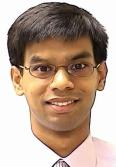 Next in the series of podcasts (previous podcasts linked below) is Sarah Blackmun of the Pangaea Network. Sarah is another long time online colleague and friend from the late 90’s who also seems to connect with others in my network (especially around her studies at the Fielding Institute where we both have a lot of mutual friends.
Next in the series of podcasts (previous podcasts linked below) is Sarah Blackmun of the Pangaea Network. Sarah is another long time online colleague and friend from the late 90’s who also seems to connect with others in my network (especially around her studies at the Fielding Institute where we both have a lot of mutual friends.
Sarah brings some different aspects to light about social media in international development. Sharing about work she and Dr. Steve Eskow have been doing in Ghana, Sarah brings in the issue of gender, particularly the importance of recognizing that often womens’ experiences are very different from men, so thinking about introduction of new technology needs to be with a full awareness of gender. Take a listen.
Related Links
Sarah’s Bio
Sarah Blackmun-Eskow is President and Chief Operating Officer of The Pangaea Network.
Sarah has four decades of experience as a president, CEO, and general manager of education-related international businesses. She served as the CEO of Harcourt Brace International and as President of Harcourt Brace Media Systems Corporation. She was a founder, with Dr. Eskow, of the Electronic University Network, where she served as Chief Operating Officer. She also served as COO of Durand Communications, Inc., a technology firm based in Santa Barbara.
Blackmun serves as President and Chief Operating Office of the Pangaea Network, where she coordinates research, planning, budgeting, implementation, and day-to-day operations.
In addition to her business background, Blackmun-Eskow has nonprofit and community service experience, including serving as a Commissioner of Human Services in Santa Barbara County; chair of the Justice and Outreach Council of Trinity Episcopal Church; and board member of AIDS Housing Santa Barbara. As a member of the World Mission Group of the Episcopal Diocese of California, and in her earlier position as information officer of the Episcopal Diocese of California (San Francisco), Blackmun established connections with Episcopal and Anglican leaders in the U.S., Africa, Latin America, and the Philippines.
Blackmun-Eskow earned a Bachelor of Fine Arts degree from Ohio Wesleyan University and a Master of Arts degree from Bowling Green University. She is currently a doctoral student in the School of Human and Organizational Development of the Fielding Graduate University, Santa Barbara, California.
- Social Media in Intl. Dev: Dr. Steve Eskow
- Social Media in Intl. Dev: Simone Staiger (e-consultations)
- Social Media in Intl. Dev: Gauresh Rajadhyaksh on iSimulate (crowd sourcing economic models)
- Social Media in Intl. Dev: Podcast with Bill Anderson on Scientists using Twitter
- Social Media in International Development Podcast: Bill Anderson
 Finally, I have grabbed a few minutes to add the next couple of podcasts in the series on Social Media in International Development. (Links to all the previous podcasts are at the bottom of this post.)
Finally, I have grabbed a few minutes to add the next couple of podcasts in the series on Social Media in International Development. (Links to all the previous podcasts are at the bottom of this post.)  Next in the podcast series on social media in international development is a dear friend and colleague, Simone Staiger discussing the design, technology and facilitation of a global e-consultation. Simone is orchestrating 6 regional consultations for the Global Forum on Agricultural Research (
Next in the podcast series on social media in international development is a dear friend and colleague, Simone Staiger discussing the design, technology and facilitation of a global e-consultation. Simone is orchestrating 6 regional consultations for the Global Forum on Agricultural Research (